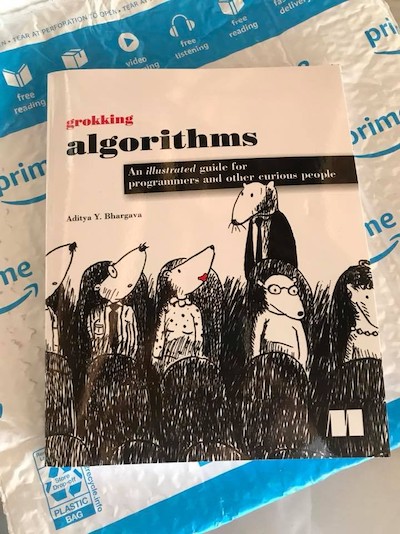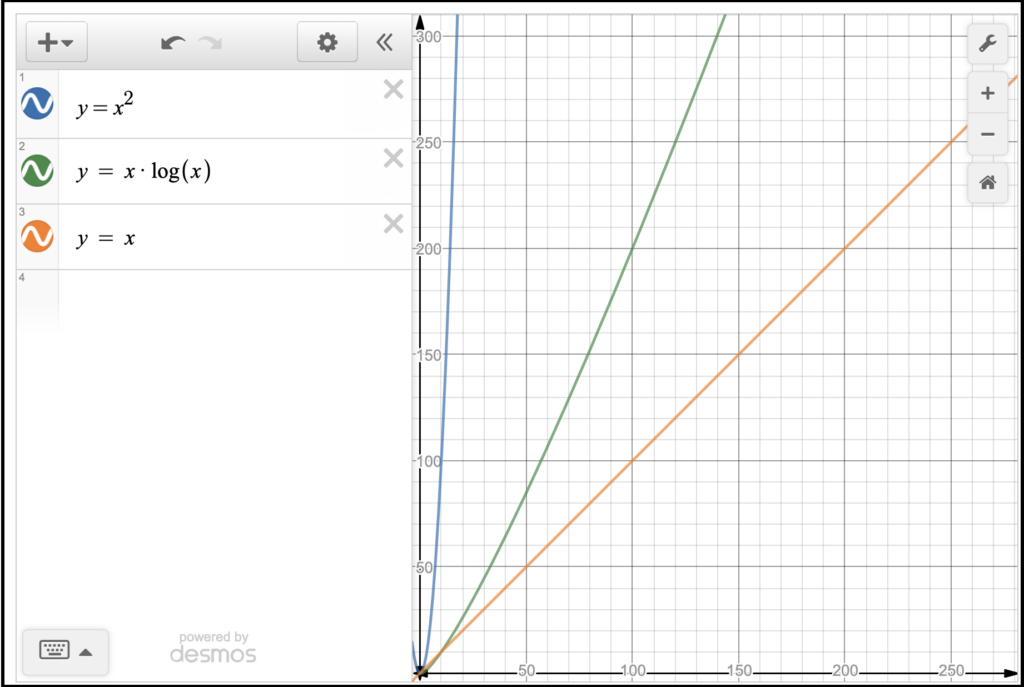Click to rate this post!
[Total: 2 Average: 5]
After reading the very popular book, grokking algorithms,
Will be blogging about algorithms and data structures… the book is very informative and easy to digest.

It’s advised you get yourself familiar with data structures before starting to solve problems…
Problem statement: return a pair of 2 distinct values (if any) that sum up to a target number, from a non empty array that has distinct integers.
Different Solutions with different time complexities
// Time: O(n^2)
func solution1(_ array: [Int], _ targetSum: Int) -> [Int] {
for i in 0 ..< array.count-1 {
for j in i+1 ..< array.count {
if array[i] + array[j] == targetSum {
return [array[i],array[j]]
}
}
}
return []
}
// Time: O(n^2)
func solution2(_ array: [Int], _ targetSum: Int) -> [Int] {
for i in array {
for j in array {
if (i != j) && targetSum == (i + j) {
return [i,j]
}
}
}
return []
}
// Time: O(n*log(n))
func solution3(_ array: [Int], _ targetSum: Int) -> [Int] {
let sorted = array.sorted()
var leftPointer = 0
var rightPointer = sorted.count - 1
while leftPointer < rightPointer {
let leftMost = sorted[leftPointer]
let rightMost = sorted[rightPointer]
let currentSum = leftMost + rightMost
if currentSum == targetSum {
return [leftMost, rightMost]
} else if currentSum < targetSum {
leftPointer = leftPointer + 1
} else if currentSum > targetSum {
rightPointer = rightPointer - 1
}
}
return []
}
// Time: O(n)
func solution4(_ array: [Int], _ targetSum: Int) -> [Int] {
var numberDictionary = [Int: Bool]()
for number in array {
let mayMatch = targetSum - number
if let exists = numberDictionary[mayMatch], exists {
return [mayMatch, number]
} else {
numberDictionary[number] = true
}
}
return []
}I’m not going to explain each code, will leave analysis to you, doing a simple benchmark on 100,000 values array, we can see these results
solution1: 31.88 s.
solution2: 18.41 s.
solution3: 0.38 s.
solution4: 0.20 s. 🥇

functions used for benchmarking
func printTimeElapsedWhenRunningCode(title:String, operation:()->()) {
let startTime = CFAbsoluteTimeGetCurrent()
operation()
let timeElapsed = CFAbsoluteTimeGetCurrent() - startTime
print("Time elapsed for \(title): \(timeElapsed) s.")
}
func timeElapsedInSecondsWhenRunningCode(operation: ()->()) -> Double {
let startTime = CFAbsoluteTimeGetCurrent()
operation()
let timeElapsed = CFAbsoluteTimeGetCurrent() - startTime
return Double(timeElapsed)
}